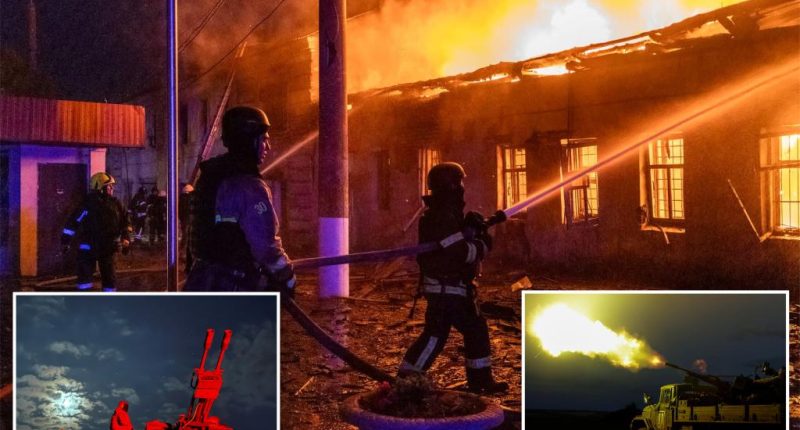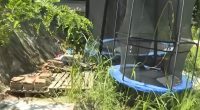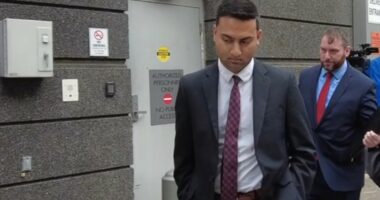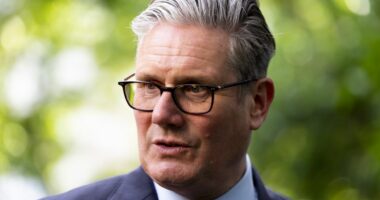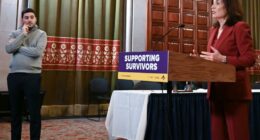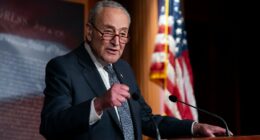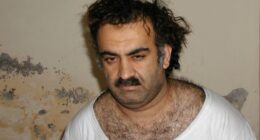Share this @internewscast.com

A resurgent Russia has intensified military offensives on two fronts in Ukraine, dispersing Kyiv’s vital reserve troops and posing a threat to extend the conflict into a new Ukrainian region, as both sides strive for an upper hand before the autumn slows the fighting.
According to analysts and military commanders, Moscow seeks to optimize its territorial gains before giving serious thought to a complete ceasefire. Meanwhile, Ukraine aims to stall the Russian advance as long as possible and inflict substantial losses.
Kremlin forces are progressively advancing in the strategically important eastern logistics hub of Pokrovsk. Capturing this area would provide them with a significant battlefield triumph and push them closer to taking control of the entire Donetsk region. This conflict has also brought combat activities to the doorstep of the neighboring Dnipropetrovsk region for the first time.
In an effort to prevent Moscow from bolstering those positions in the east, Ukrainian forces are trying to pin down some of Russia’s best and most battle-hardened troops hundreds of kilometers away, in the northeast Sumy region.
“The best-case scenario for Ukraine,” said Russian-British military historian Sergey Radchenko, “is that they’re able to stall or stop the Russian advance” in the Ukrainian industrial heartland known as Donbas, which includes the Donetsk and Luhansk regions. Then Ukraine could “use that as the basis for a ceasefire agreement.”
“There’s a better chance for Russia to come to some kind of terms with Ukraine” in the fall when the Russians “see the extent of their offensive,” Radchenko added.
While the battles rage, Ukrainian President Volodymyr Zelensky is waiting to learn whether the Trump administration will support tougher sanctions against Russia and back a European idea to establish a “reassurance force” to deter Moscow.
One setback came with the US decision to halt some weapons shipments out of concern over the US’s own depleted stockpiles.
Ukraine faces relentless assaults in Sumy
In the Sumy region, Ukrainian forces face a constant barrage of aerial glide bombs, drones and relentless assaults by small groups of Russian infantrymen. They endure the attacks to prevent Russian forces from being moved to other battlegrounds in the eastern Donetsk region.
Ukrainian forces intensified their own attacks in Sumy in April and even conducted a small offensive into Russia’s neighboring Kursk region to prevent up to 60,000 battle-hardened Russian forces from being moved to reinforce positions in the Donetsk, Zaporizhzhia and Kherson regions, Ukraine’s top army commander, Gen. Oleksandr Syrskyi, said last week.
If those troops had been moved, they could have increased the tempo of Russian attacks across the front line and stretched Ukrainian forces thin.
The strategy did not come without criticism. Commanders who were ordered to execute it complained that it resulted in unnecessary loss of life.
Russian forces have penetrated up to 7 kilometers into the northern Sumy region from different directions along the border.
Ukrainian forces are determined to keep them there to avoid freeing up Russian forces to fight in the east. So far they have succeeded, locking up to 10,000 Russian troops in the Glushkovsky district of the Kursk region alone, where Ukraine maintains a small presence after being mostly forced out by Russian and North Korean troops earlier in the year.
Russia seeks maximum gains in Donetsk
The war’s largest battle is being waged in Donetsk as Russia inches toward its stated goal of capturing all of the Donetsk and Luhansk regions.
Unable to tackle the strategically significant logistical hub of Pokrovsk directly, Russian forces are attempting to encircle the city, a maneuver that requires encroaching on the borders of the Dnipropetrovsk region.
Bringing the war to a sixth Ukrainian region would be detrimental for Ukrainian morale and give Russia more leverage in negotiations if its forces manage to carve out a foothold there.
Sabotage groups have crossed the border, only to be eliminated by Ukrainian forces.
But in time, commanders fear that Russia will advance as Ukraine continues to grapple with severe shortages.
Lack of soldiers and supplies across the 745-mile front line mean that Ukrainian forces must concentrate on holding their positions and conserving resources rather than advancing, said Oleksii Makhrinskyi, deputy commander of the Da Vinci Wolves battalion.
Commanders describe battles so intense under drone-saturated skies that rotating forces in and out of position has become a deadly operation. Ukrainian forces remain in combat positions for several weeks at a time or more, relying on supplies carried in by drones.
The Russians’ goal “is just to enter Dnipropetrovsk region, to have a good position politically if the presidents negotiate peace,” said Andrii Nazerenko, a commander of the 72nd Brigade, a drone unit in eastern Ukraine, referring to potential talks between Zelensky and Russian President Vladimir Putin.
“They’re really close to getting what they want,” he said.
All eyes on Trump’s next move
Zelensky hopes US President Donald Trump will move away from his administration’s past ambivalence toward Ukraine and signal his intention to continue American support, a move that could also alter Moscow’s calculations.
The two presidents met last week on the sidelines of a NATO summit and discussed a possible weapons package, including Patriot missile systems that Ukraine intends to purchase with European support.
The US Defense Department did not specify which weapons were being held back, when they disclosed the Pentagon review of US weapons stockpiles Tuesday.
Zelensky also hopes Trump will punish Russia by imposing harsher sanctions on its energy and banking sectors, which bankroll the Kremlin’s war effort.
Europe and the US have imposed successive sanctions on Russia since the full-scale invasion in 2022, but Zelensky says those measures have not been enough to pierce Moscow’s war machine. He has proposed a $30 per barrel price cap on Russian oil.
EU sanctions envoy David O’Sullivan said Europe needs to maintain the sanctions pressure while also “holding out the prospect that if Russia behaves correctly, we could have some kind of ceasefire and some kind of sense of negotiation, but for the moment Russia doesn’t seem to want that.”
Kyiv’s closest European allies are also awaiting a sign from Trump that he will support a plan to deploy foreign troops in Ukraine to guard against future Russian aggression after a ceasefire agreement. That is likely the best security guarantee Ukraine can hope for in lieu of NATO membership.
Meanwhile on the battlefield, Russian forces appear increasingly confident.
Nazerenko noticed a shift in the morale of advancing Russian infantrymen in recent months. Instead of running away while being assailed by Ukrainian drones, they keep pushing forward.
Nazerenko could not help but ask a Russian prisoner, “You know you will die. Why go?”
Because, the Russian soldier replied, “we will win.”
